Related Research Articles
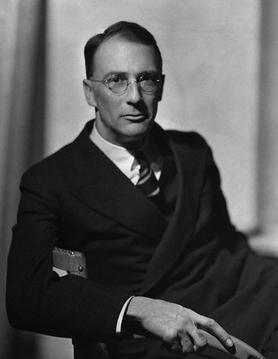
Cecil Louis Troughton Smith, known by his pen name Cecil Scott "C. S." Forester, was an English novelist known for writing tales of naval warfare, such as the 12-book Horatio Hornblower series depicting a Royal Navy officer during the Napoleonic wars. The Hornblower novels A Ship of the Line and Flying Colours were jointly awarded the James Tait Black Memorial Prize for fiction in 1938. His other works include The African Queen and The Good Shepherd.
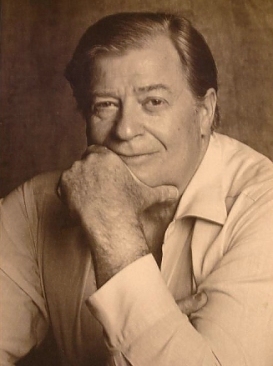
James Clavell was an Australian-born British writer, screenwriter, director, and World War II veteran and prisoner of war. Clavell is best known as the author of his Asian Saga novels, a number of which have had television adaptations. Clavell also wrote such screenplays as those for The Fly (1958) and The Great Escape (1963). He directed the popular 1967 film To Sir, with Love for which he also wrote the script.
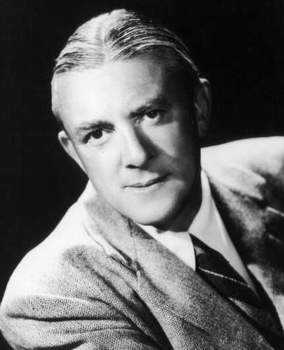
James Hilton was an English novelist and screenwriter. He is best remembered for his novels Lost Horizon, Goodbye, Mr. Chips and Random Harvest, as well as co-writing screenplays for the films Camille (1936) and Mrs. Miniver (1942), the latter earning him an Academy Award.

Peter Lorre was a Hungarian and American actor, first in Europe and later in the United States. He began his stage career in Vienna, in the Austro-Hungarian Empire, before moving to Germany where he worked first on the stage, then in film in Berlin in the late 1920s and early 1930s. Lorre caused an international sensation in the Weimar Republic-era film M (1931), directed by Fritz Lang, in which he portrayed a serial killer who preys on little girls.
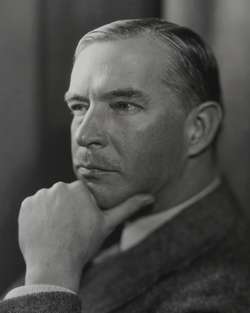
John Phillips Marquand was an American writer. Originally best known for his Mr. Moto spy stories, he achieved popular success and critical respect for his satirical novels, winning a Pulitzer Prize for The Late George Apley in 1938. One of his abiding themes was the confining nature of life in America's upper class and among those who aspired to join it. Marquand treated those whose lives were bound by these unwritten codes with a characteristic mix of respect and satire.

Mr. Moto is a fictional Japanese secret agent created by the American author John P. Marquand. He appeared in six novels by Marquand published between 1935 and 1957. Marquand initially created the character for the Saturday Evening Post, which was seeking stories with an Asian hero after the death of Charlie Chan's creator Earl Derr Biggers.

George Henry Sanders was a British actor and singer whose career spanned over 40 years. His heavy, upper-class English accent and smooth, bass voice often led him to be cast as sophisticated but villainous characters. He is remembered for his roles as Jack Favell in Rebecca (1940), Scott ffolliott in Foreign Correspondent, The Saran of Gaza in Samson and Delilah (1949), the most popular film of the year, Addison DeWitt in All About Eve, Sir Brian De Bois-Guilbert in Ivanhoe (1952), King Richard the Lionheart in King Richard and the Crusaders (1954), Mr. Freeze in a two-part episode of Batman (1966), and the voice of Shere Khan in Disney's The Jungle Book (1967). Fans of detective stories know Sanders as Simon Templar, The Saint, (1939–41), and the suave crimefighter The Falcon (1941–42).
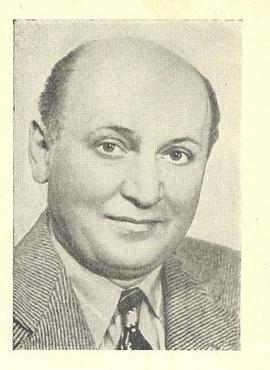
Ludwig Bemelmans was an Austrian-American writer and illustrator of children's books and adult novels. He is known best for the Madeline picture books. Six were published, the first in 1939.
John Creasey was an English crime writer, also writing science fiction, romance and western novels, who wrote more than six hundred novels using twenty-eight different pseudonyms.
Philip MacDonald was a British-born writer of fiction and screenplays, best known for thrillers.

Think Fast, Mr. Moto is a 1937 film directed by Norman Foster and featuring a mysterious Japanese detective named Mr. Moto. It is the first of eight films in the Mr. Moto series, all based on the character Mr. Moto created by John P. Marquand. The film stars Peter Lorre as the title character, Virginia Field, Thomas Beck and Sig Ruman. Mr. Moto works to stop a secret smuggling operation.

Thank You, Mr. Moto is a 1937 film directed by Norman Foster. It is the second in a series of eight films starring Peter Lorre as Mr. Moto. It was based on the novel of the same name by the detective's creator, John P. Marquand. Mr. Moto battles murderous treasure hunters for priceless ancient scrolls which reveal the location of the long-lost tomb of Genghis Khan.

Mysterious Mr. Moto, produced in 1938 by Twentieth Century Fox, is the fifth in a series of eight films starring Peter Lorre as Mr. Moto.
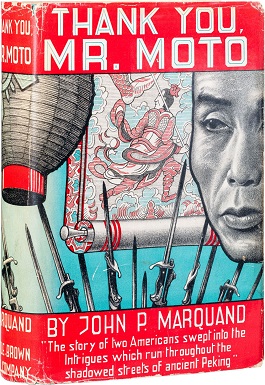
Thank You, Mr. Moto, was originally published in serial form in the Saturday Evening Post from February 8 to March 14, 1936, this novel was first published in book form in 15 May 1936.
Mr. Moto's Last Warning is the sixth in a series of eight films starring Peter Lorre as Mr. Moto.
Mr. Moto Is So Sorry was originally published in serial form in the Saturday Evening Post from July 2 to August 13, 1938, and was first published in book form in 1938. It is the fourth of six Mr. Moto novels and can also be found in the omnibus Mr. Moto's Three Aces published in 1939.

Stopover Tokyo is a 1957 American film noir crime film directed by Richard L. Breen and starring Robert Wagner, Joan Collins, Edmond O'Brien and Ken Scott. Filmed in Japan in CinemaScope, the film is set in Tokyo and follows a US counterintelligence agent working to foil a communist assassination plot.
Your Turn, Mr. Moto is a 1935 spy novel by John P. Marquand and the debut novel in the Mr. Moto series.
William Roger Burlingame (1889–1967) was a prolific author, writer, and biographer. Burlingame served as the book editor at Scribner's Magazine (1914–1926). After leaving his job at Scribner's, Burlingame authored 25 books, including biographies and works of historical non-fiction. He also wrote for The New York Times Magazine and The New York Times Book Review.
This is a list of books that topped The New York Times Best Seller list in the adult fiction category in 1949.